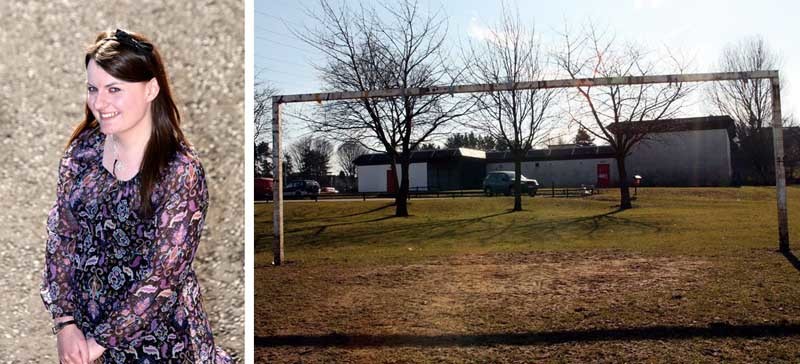After allegations of abuse in a Dundee under-13 football match, Courier reporter and ex-referee Geraldine McKelvie takes a personal look at the problem that is blighting the game at grassroots level.
Sadly, the scenes at Drumgeith Park, Dundee, on Tuesday night when an enraged parent watching an under-13s football match instructed his son’s team to “kill” the opposition are far from a one-off.
Having refereed games at a similar level for three years in Lanarkshire, I can say with certainty that scenes like this are played out on public parks all over Scotland on a weekly basis.
Every Saturday and Sunday morning, I had to deal with like-minded parents encouraging their children some as young as 10 to be violent or abusive towards the opposition and officials.
On several occasions, I had to send grown men to watch the rest of the game in their cars because of the abuse they were giving the opposing side from the sidelines.
Worse still, some of them turned on their own children and launched vicious attacks on their performances when the game was not going their way.
What makes this even more of a concern is the fact I did not just witness this behaviour in league deciders like Tuesday’s match one of the worst incidents occurred in a pre-season friendly.
Spurred on by what they were hearing from the sidelines, several of the 12-year-old players began fighting with each other but their parents offered no assistance when it came to splitting it up.
I also had to attend numerous disciplinary hearings for young players who had appealed red cards I had issued for violent conduct or foul and abusive language.No remorseI remember sending one 13-year-old player off after, amid a torrent of other unrepeatable insults, he told me to “get back to my knitting like a real woman” because I had disallowed a goal that was offside.
His dad then hurled similar abuse at me for the rest of the match after I refused to overturn my decision. But during the appeal process, all he was worried about was whether a ban would affect his son’s chances of being selected for a Scotland schoolboys’ side.
I met him years later in a pub and, aided by a little Dutch courage, he apologised for his behaviour, but few parents ever show any remorse.
I can totally understand what spectator Andy Walker meant when he said the players in Tuesday’s game were “shaken up” by the incident and “flopped” for the rest of the game.
When the parents of young players behave like this, the focus is no longer on football, but on the threatening and unpleasant atmosphere surrounding the match, which is not enjoyable for anyone.
This does not bode well for a country like ours, which desperately needs to nurture young sporting talent.
I became a referee because I love football and I understand that emotions will always run high in crucial games like this, especially when there is a bit of local rivalry involved but it’s no excuse for parents to be setting such a disgraceful example to their children.
If we want to see any improvements in Scottish football at grassroots level, we need to make sure children do not feel like they have to be violent or abusive to prove their worth on the park.
